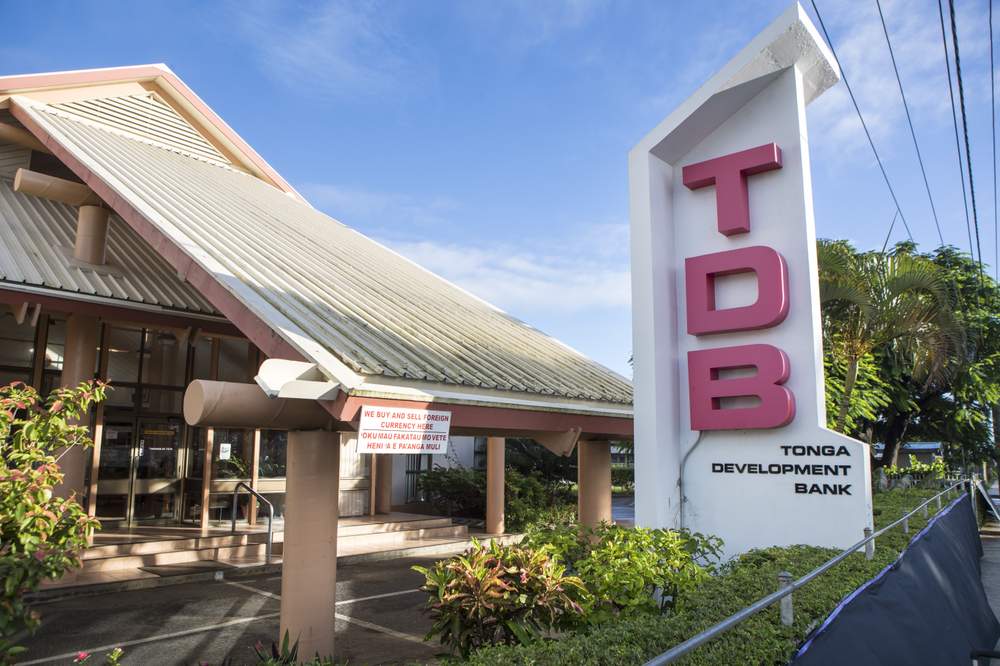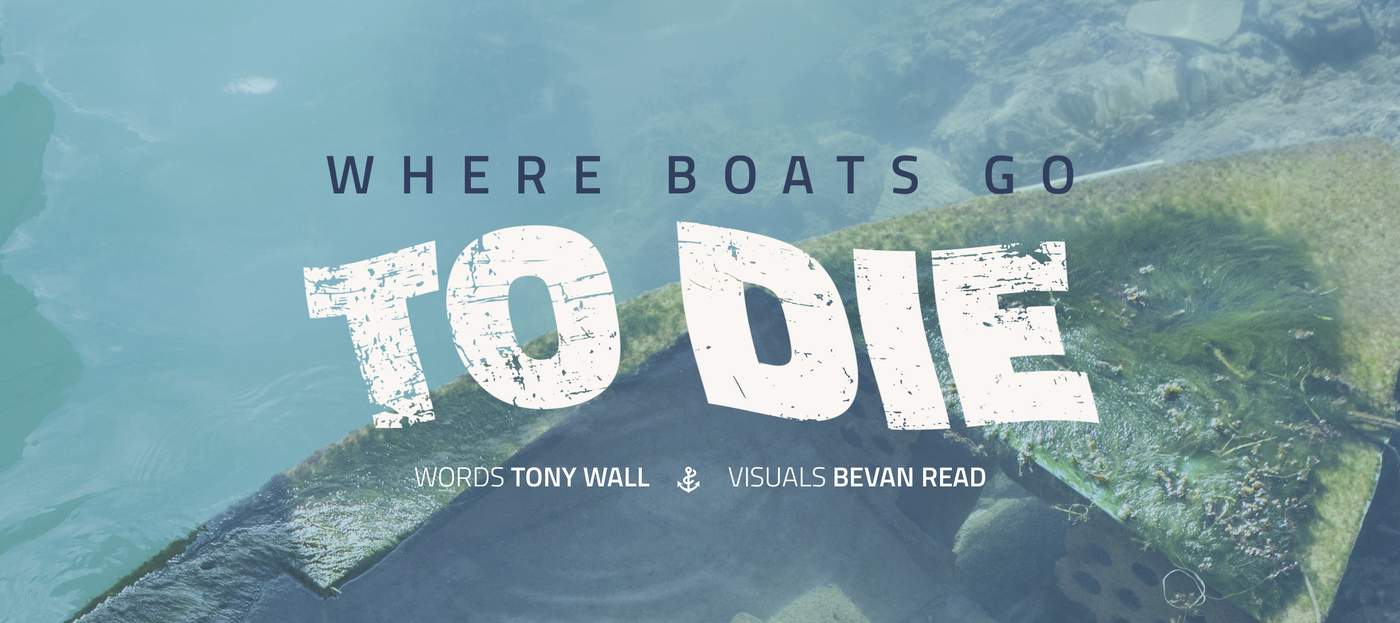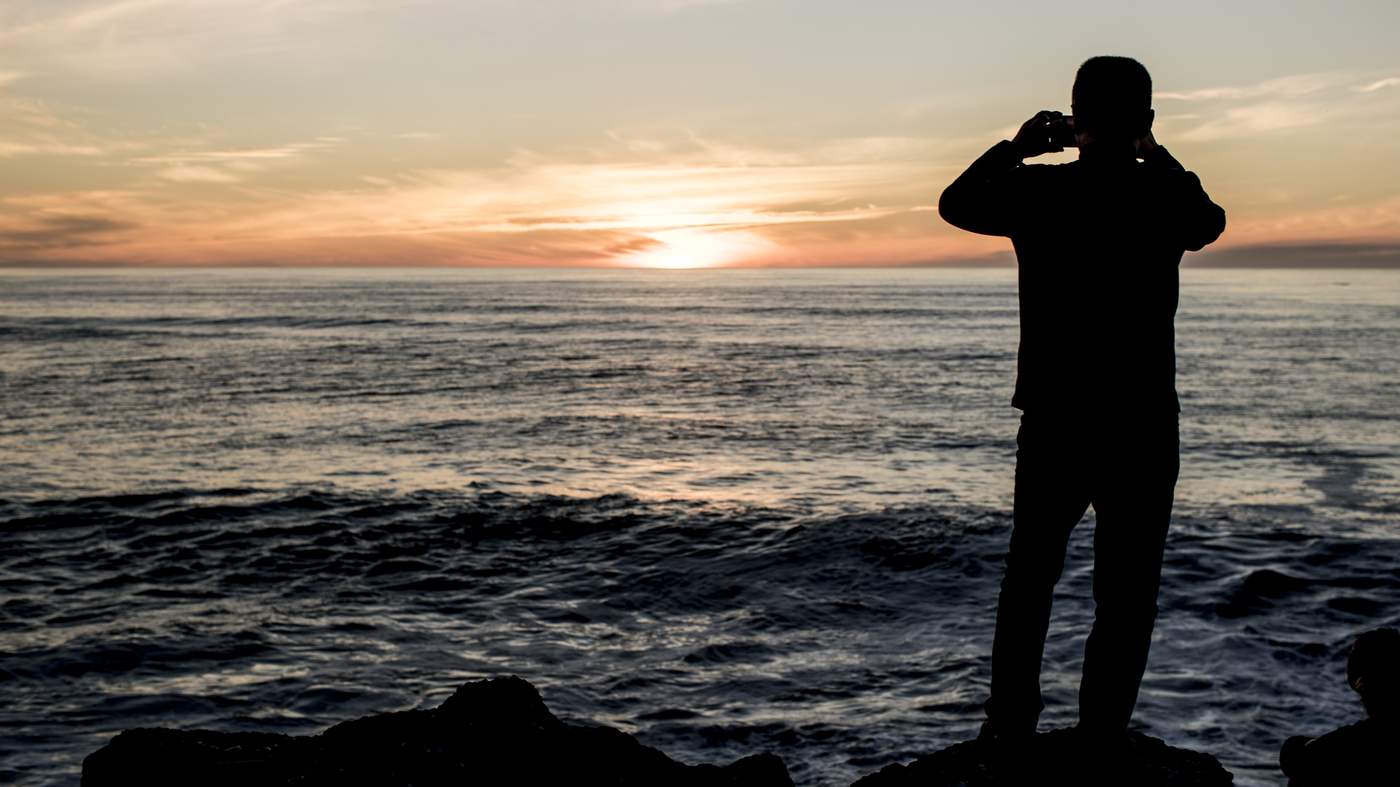He wakes in the middle of the night, unable to sleep, his mind going back to the day he lost everything.
He grabs his daughter's tablet and watches the video for the hundredth time.
Shot from the deck of the German cruise liner Albatros, it shows his stricken trawler, the Losemani Fo'ou, being rescued by one of the ship's life boats.
A Tongan crewman ends up in the sea; another’s head is split open.
Vailele Taukitoku had bought the trawler for $83,000 from New Zealand four months earlier - he never saw it again.

Vailele Taukitoku, pictured with daughter Sela, lost the boat he'd hoped to make a living from.
He and five crew had been fishing for snapper several hundred kilometres south of Tonga when they discovered the alternator belt was loose and both banks of batteries were dead.
Unable to start the engine or operate the radio, they had no choice but to activate the emergency beacon during the early hours of February 4, prompting a major search and rescue operation funded by the New Zealand taxpayer.
An Airforce Orion flew from Whenuapai and dropped equipment, while the Albatros was diverted from 300km away, taking the crew to Auckland.
Taukitoku had asked for a 24 volt battery to start the engine and two were ready, with jumper leads, on the rescue boat.
To Taukitoku, the sea conditions were "normal", but the rescuers were alarmed by the way the boat was rocking and taking on water so instead they threw a rope and brought the Losemani Fo'ou alongside the Albatros.
The trawler was left behind - with it went his livelihood.






He'd retired from jobs as an instructor at the Tonga Maritime Polytechnic Institute and with the police rescue unit, so fishing for export snapper and bluenose was his only means of providing for his wife and daughter.
"I feel... lost," he says, his voice trailing off.
When Taukitoku arrived home there was more bad news.
His loan from the Tonga Development Bank (TDB) was not insured (neither was the trawler) and he would be expected to continue making re-payments.
It's a dire situation - without his main source of income he can't hope to service the 188,000 pa'anga ($120,000) loan and that means that he could lose the property he put up as collateral. Already he is a month in arrears.

Vailele Taukitoku, right, admits he made mistakes, but says the boat's survey report was outdated.
He and his family have always fished - his brother died at sea - and Taukitoku admits he made mistakes before he set off for a week-long trip in late January, chief among them forgetting to draw up a check-list and leaving behind his emergency generator.
There were six people on board when the vessel was only certified to carry four.
But he's unhappy with the deal that led to the purchase of the trawler from New Zealand, and the condition of the boat.
He claims the safety equipment - flares, life raft, fire extinguishers - had expired, the radio was no good, and when he took the boat out of the water in Nuku'alofa he found a hole in the hull near the keel big enough to fit three fingers.
"After we repaired the port side, [we found] another leak on the other side," he says.
The trawler's five-year certificate of survey, a maritime equivalent of a warrant of fitness and valid until 2020, did not match the condition of the boat when he bought it, he claims.
Taukitoku is one of at least seven people to have used TDB loans, with interest rates as low as 1 per cent, to buy old boats from New Zealand in the past few months.

Second-hand boats are all that can be afforded with TDB loans designed to help the fishing industry.
The money is part of a 1m pa'anga ($655,000) fund to provide employment in the fishing industry at a time when Pacific Island fisheries are being plundered by illegal operators.
It's a tiny amount by world standards and means that those wanting to take out a loan - some with no experience of deep sea fishing - can only afford second-hand boats.
Trawlers, mostly around 12m and ranging in age from 45 to 80, have been purchased from Greymouth, Picton, Havelock, Timaru and Dunedin for between $60-80,000.
Some of the buyers have complained about the survey reports, but sources say a maritime survey is only a reflection of a boat's condition at the time of inspection and regular maintenance is needed to keep it sound.
In most of the sales, the middle-man has been Aisake Tuiono, a former chief accountant with the Tonga Electric Power Board, squash exporter, and board member of a failed Chinese-Tongan bank venture.
Tuiono, a close associate of Princess Pilolevu, himself bought a fishing boat with a TDB loan - in 2015 it had to be rescued by the New Zealand airforce and Tongan navy when its engine failed.
Tuiono has helped several buyers find boats and prepare their loan applications, and also travels to New Zealand to inspect the vessels and close the deal.

Aisake Tuiono is the middle-man between Tongan boat buyers and NZ sellers.
In four instances he has worked with New Zealand boat brokers Maritime International.
Taukitoku and others say they paid Tuiono a 3000 pa'anga ($2000) commission before leaving Tonga.
"When the money was released from the bank, he told me to give him his 3000," Taukitoku says.
Tuiono says by email that he only charges the fee if the buyer wants him to travel to New Zealand to inspect the boat and finalise the sales and purchase agreement. The money covers airfares and "living expenses" in New Zealand, he says.
"I told the fishermen that I don't charge for ... providing information about the fishing vessel and assisting preparation of his loan proposal."
He says he was the first to buy a vessel from New Zealand.
"When my boat arrived nearly all fishermen in Tonga were eager to know what I have done."
He acquired his knowledge of boats, he says, by talking to fishermen, marine engineers, Ministry of Fisheries officers and New Zealand boat brokers.
The buyers are required to pay a 10 per cent deposit before leaving Tonga and they have seven days after signing the purchase agreement to arrange an inspection by a registered surveyor. Most don't.
Because they have spent up to 20,000 pa'anga ($13,000) of their loan money arranging visas and flying a crew to New Zealand to collect the boats, the buyers feel they have to go through with the deal and get home as quickly as possible to start earning and paying back the debt.
"The money was already deposited, if I disagree with it, my deposit was gone, and my expenses, so I decided to buy the boat," Taukitoku says.
Because of a quirk of maritime law, the trawlers are leaving New Zealand without full inspections.
If they were New Zealand commercial vessels going overseas, they'd need extra safety equipment and a Certificate for International Voyage from Maritime NZ.
But the Tongans re-register the boats to a Tongan flag before they leave New Zealand, meaning Maritime NZ has no jurisdiction.

A quirk in maritime law prevents the need for full inspections.
"As soon as you de-register, you're not commercial," says a fishing source in Greymouth, where two boats were sold.
"I could launch the bathtub at home, you can't stop me sailing away in it. That's how they're doing it."
Tonga's Ministry of Infrastructure requires only that the boats have a current New Zealand survey before making the journey.
In the case of the Losemani Fo'ou, it was only certified to operate within 12 nautical miles (22km) of the New Zealand coast, but when it reached Tonga the marine department allowed it to operate within 200 nautical miles (370km) of land.
Teisina Fuko, who operates two much larger fishing vessels out of Nuku'alofa and is a former MP and past president of the Tonga National Fishing Council, believes the buyers are getting a raw deal.
"The ones ... from New Zealand are the worst boats," he says.
"It's a waste of money. I wouldn't even spend 20 thousand on one of the boats. I'd say 'you have to fix this, this, this'.
"We go out 200, 300 miles, those are rough seas, almost the high seas. They should have a good boat with a good engine, but these engines have been operating for more than 20 years. You're asking for trouble.
"The police are very worried about it too, we had a meeting with them, they are worried about the old boats going out, they have to go all the time for rescues. Lives are being put at risk."

Teisina Fuko, centre, believes Tongan fishermen are being ripped off by Kiwi boaties selling them their worst trawlers at inflated prices.
Because of the number of breakdowns, he is dubious that the bank will see its money.
"To pay off these loans is almost impossible - I was a banker, I know."
Conversely, he wants the bank to lend the owners more so they can properly maintain their boats and start earning. And he thinks the Tongan and New Zealand governments should step in.
At TDB headquarters, chief executive Leta Kami is offering few solutions to Taukitoku's plight.

Tonga Development Bank chief executive Leta Kami says fishermen are unlikely to get insurance for their boats.
"It's sensitive because there's no insurance," she says. "It's very difficult to get insurance companies to insure boats in Tonga.
"That's a risk [customers] have to be prepared to take on their own."
Tuiono, the middleman, says the bank should lend more money to upgrade the boats but Kami says it's a limited, revolving fund and more money will only become available when the loans are repaid.
She says Taukitoku's only "lifeline" may be an email he has from the German travel company that owns the Albatros, indicating it might help him buy a new boat.
Taukitoku, meanwhile, stays home, sleeping late at the decrepit house in central Nuku'alofa he shares with relatives.
He survives on his share of the $23,000 donated by passengers and crew of the Albatros to split amongst his crew.
His daughter, Sela, worries about him.
"It's still in his mind. He still talks about it every day."
WHERE BOATS GO TO DIE
WORDS: Tony Wall
VISUALS: Bevan Read
PRODUCTION: Chris Hyde
COVER IMAGE: Tom Young







